Chapter 8: "Two Heads Are Better Than One"
Some details, ideas, and
musings I've had experiencing effective RPGs and RPG Makers
© April Written by David Wicker
Please do
not reprint without permission
Okay, we've covered quite a bit. While we did touch on having more than one player in a team for a RPG, let's now go in-depth and cover the different kinds.
If you're only familiar with those companions who can equip and ready weapons the same as the main player, then you're missing out.
Years ago an RPG came out for B&W Gameboy called, "Great Greed." It was unique in that the one companion you could have to assist you in combat did not actually have any hit points of their own, nor could they be hit by other attackers.
The first companion you get in the game only randomly increased your damage via text during combat, "Candy cheers for you." Where your companion's name is Candy.
Later companions do things like heal your hit points and do additional elemental damage to your opponent. But at no time are they ever hit, receive damage, or can be controlled manually.
Great Greed also had the advantage that if you pressed SELECT at any time, the current companion you had would remind you what it is you are supposed to be doing. Not as good as a Total Recall that we covered a few chapters ago, but helpful if you truly get lost.
Even before this there was Final Fantasy Mystic Quest. By default, your companion was set to AUTO which allowed them to both attack and support the main player. But the AUTO could be turned off and this was recommended when attacking a major monster like a BOSS where you needed everyone to focus as you did.
Other games followed but the idea of having friends that could heal, help, support, and increase the damage to attackers was a popular one.
In some instances, while you could control your companions in combat, you MIGHT NOT be able to modify their inventory or strip them of their good weapons and armor to put on your other players. This was useful for temporary companions that wouldn't be with you in the long run in the game.
Generally it truly was "The more the merrier," but it also added complexity and a certain degree of tediousness to the game.
For instance, if you had one main player and 4-sub players, then it was up to the player to keep track of all =5= players and ensure they did not run out of hit points or magic points when they were needed.
While early monsters usually focused only on one target at a time, later bosses would strike ALL the players with some degree of debilitation. It was then that super-rare items would come into play, those that could HEAL all players in a team in a single move. It was up to the player to scour their planet to locate these hard-to-find items and talismans.
So it was only the diligent players that would not meet with a terrible fate.
These games shaped us, made us player better than we did. For every loss we had, we gained something from it. Learned something. And the next time we faced that great evil boss or whatever it was we couldn't - in time, we could. And it was due solely to being able to work all players effectively and together.
. . .
On a different line, in some early RPGs, the player could only carry so many items. For Final Fantasy Legend 1 for the Gameboy, for instance, the player could only carry up to 8-items.
Each extra player they had on the team could also only carry up to 8-items, but with 4 in the party, that would be an essential 32-slots to place items in.
Today most RPGs don't have limitations like this and let you have an infinitely large inventory that ultimately carried up to a limit of 99 of anything at all - and any player could access these items during combat. Not a very believable premise but a certainly playable one.
Also In these games, the more players in the team, the better the chances of succeeding in combat. Especially when later in the game a monster could cast a single spell and turn one of the four players to stone.
Now, were this combat conducted with just the single main player and the attacker cast this enchantment, the game would be over - as no-one would be there to turn the player back from stone to flesh.
So companions are vital in these adventure games. While you likely don't want to allow an infinite number of companions that can join the player, a good round number is 3-5 total players for an adventure and quest.
And, in combat, if a devastating spell hits one of your companions or the main player killing them in a single blow, those surviving can, spells or items allowing, revive them in the next turn.
Companions are important for story too. Few people would want to play an adventure game where there is little or no interaction of the team with the rest of the story. Here is what I have learned playing RPGs and what I consider a "perfect" description of team members.
. . .
[PLAYER] ... jack of all trades, do just about anything anyone else can, but not to a high level.Usually does not speak a single word at all during the game but those "conversing" with the player will respond as if they did. If male, gets along well with AMAZON.
[Wizard] ... male, small, frail, poor attack and armor, devastating attack magics. Rather smug about himself. Thinks he is more intelligent than others. Has more interest in studying magical books than anything else. Uses spells to get his way. Gets along well with PRIEST.
[Sorceress] ... female, slightly taller than male wizard, also poor physical attack and armor, high attack magics. Has a short fuse. Argumentative. Can be treacherous and deceitful, especially using magics to get her way, love potions, sleeping potions, etc. Love interest for player if male, reverse if not. Gets along well with FIGHTER and sometimes HEALER.
[Fighter] ... male, tallest of all, built like a brick. High attack and strong armor. Not very bright, relies on baser instincts. Sorceress often uses him cunningly to get her way on things - so obviously he gets along well with SORCERESS.
[Amazon] ... female, tall, extremely muscular. Not the brightest candle. Also relies on base instincts and moods. Usually has love interest for PLAYER (if player Male), reverse if Female. Powerful attacks, speedy too. Armor not so great. Uses her charisma often to get her way. Gets along well with PLAYER.
[Priest] ... male, pious, quiet, intelligent. Low attack and low armor. Usually the brightest of the bunch. Offers excellent advice. Has spells for healing. Believes things are balanced in the world. Gets along well with WIZARD.
[Healer] female, poor armor and poor attacks. Intelligent but also cunning. Uses circumstances and clever talk to often get her way. She constantly downplays Fighter and Amazon, usually getting into fights with them. Gets along well with SORCERESS - but they can also be at each other's throats if there is a male interest involved.
. . .
This is just a sample. You are of course more than welcome to develop your own character styles and - haven't you noticed in playing modern RPGs that many of the companions a player has in their regime always has some degree of mental drama taking place ?
That is the SPICE OF LIFE and can definitely add sweet cream to the top of your game plot. Never underestimate the VICES and VIRTUES of a stereotypical companion to carry a good and immersive story. :)
. . .
That's
all for today ! Next week the chapter will be called, "Numbers" and will focus on the actual mathematics involved in combat, defense from attacks, doing damage to opponents, casting supportive spells, and healing players with both consumable items and magics.
Until then, bye for now ...



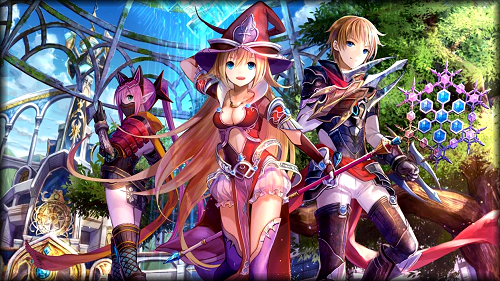
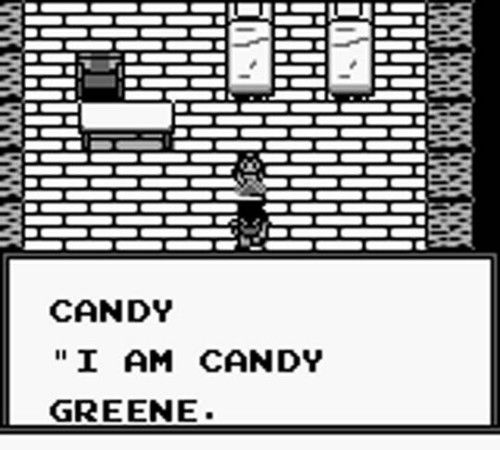
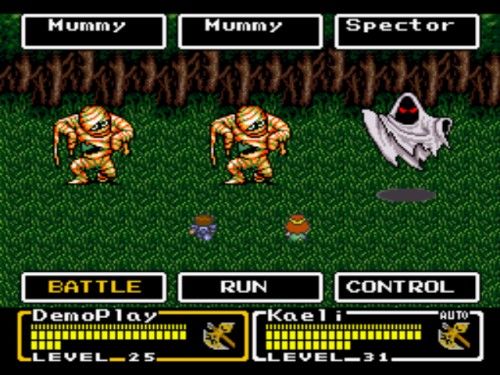
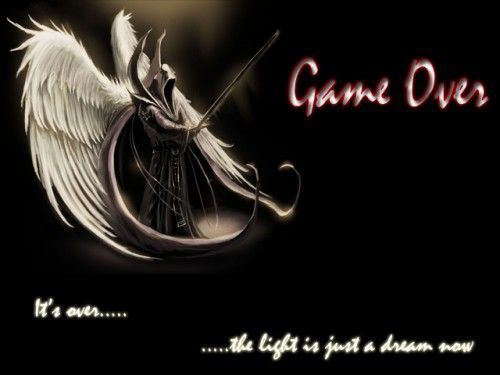
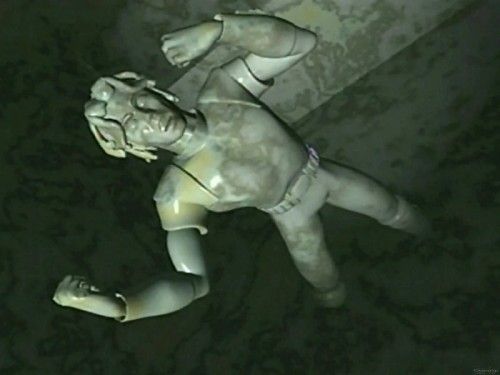
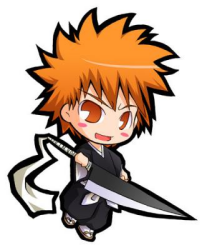
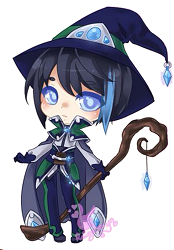
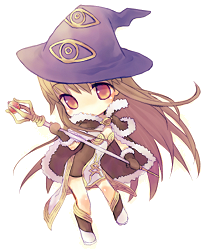
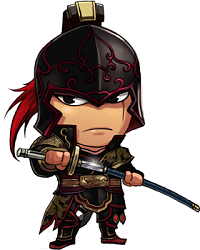
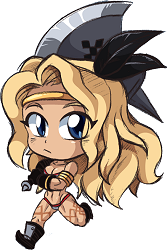
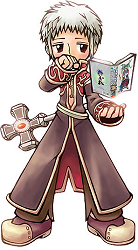
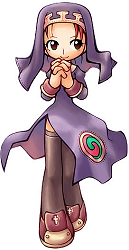
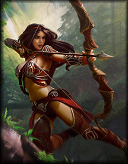

 Flag Writing
Flag Writing